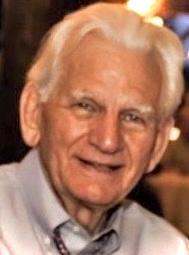Smaller, better districts that spend less money.
That was the consensus of suburban Shelby County officials who weighed in on the need to create municipal school districts here.
“I think it’s great,” said David Reaves, a Shelby County School Board member, following the passage of two bills in the state legislature that will allow new suburban districts. “I believe we’ll have small, quality districts that will end up spending less money.”
The bills that passed Monday and Tuesday in the House and Senate were the most recent victories for suburban school proponents who have been fighting to create new districts for several years. All six municipalities in Shelby County – Bartlett, Arlington, Collierville, Germantown, Lakeland and Millington – tried to create districts last year. But after a federal judge ruled the new districts were unconstitutional, suburban school cheerleaders and lawmakers alike went back to the drawing board.
“There’s no question regarding the constitutionality of these laws,” said state Sen. Mark Norris, a sponsor of the bills who has long advocated for new municipal districts. Norris, a Collierville Republican, said the votes Monday and Tuesday effectively ended the legislative initiative.
“This is the ultimate parental choice in neighborhood schools,” he said.
Shelby County Commissioner Terry Rowland said he agreed, and now, suburban communities can create the districts that work best for them.
“It will give the people authority to run this school system the way they see fit,” said Rowland after the state legislature struck down a 1998 law that prohibited the creation of new municipal districts. “I’ve got all the faith in the world in the suburbs.”
Even with the approval of the new bills – one that changes the previous law and another regulating the number of school districts each county may have based upon population – suburban school districts are still at least a year away, said Bartlett Mayor Keith McDonald.
“We have to wait for the speakers of both the house and the senate to sign the bills, and for the governor’s signature, and then we have to create a referendum and ordinance to actually create the district,” said McDonald. “We’re probably looking at a similar timeframe as what we saw last year.”
McDonald said he is hopeful that the Aldermen in Bartlett would be able to do a first reading of such an ordinance in May, and that new districts could open in Shelby County’s six suburban municipalities in August 2014. Between now and then, the county commissioners would have to redraw the boundaries for each district; the municipalities would have to form education committees to address the new district’s needs; and the people of each district will have to elect a school board, he said.
“We’d try to get as many things together in a committee as possible so that when the board is in place, they can focus on selecting a superintendent,” said McDonald.
But before the districts can split, the current district will become officially larger. The new Memphis and Shelby County Schools district takes effect in September, effectively ending the remains of the former Memphis City Schools and Shelby County Schools. The two unified after MCS gave up its charter a couple of years ago.
Despite the larger district, Rowland said the delayed process may have helped the suburbs.
“By putting it off a year, the suburbs get to take advantage of the ½ cent sales-tax hike” for the unified district, he said. “That puts them ahead of the ballgame.”
Still, the fight for suburban districts might not be over. Concerns expressed about the new districts creating segregated schools, and thus violating the 14th Amendment to the U.S. Constitution, will have to be addressed, McDonald said.
“I don’t think they are violating the amendment, but they (some of the county commissioners) think we are,” he said.
Rowland said he agreed.
“Anyone using that argument has never been to the schools,” said the Millington resident who also said he believes the schools in his community are very diverse. “These other commissioners are doing a misjustice to people. They are spending money on lawsuits that we could be using in other areas.
“I think these commissioners will go down for destroying the school system and breaking the county.”
Reaves said he also doesn’t believe that people are being denied equal protection under the law, but he does believe money management is a serious issue.
“From my viewpoint, one of the things I’ve learned is that education is hard to scale,” he said. “We do have the resources to (create the new districts), and I think it’s going to be evident by the money each district saves.”
As for his future as a board member, Reaves said he will continue to serve the county as long as it has a unified board but has no intentions of running as a Bartlett school board member. Reaves recently was elected to the unified board after the former Shelby County and MCS board members were appointed to only a grandfathered term and will be one of the seven school board members remaining after those who were not elected to stay drop off in September.
“I have three kids in he schools in Bartlett, and I’ll remain as a supporter,” he said.
- Home
- >
- Uncategorized
- >
- Bills passed in House, Senate give suburbs hope for schools | Collierville Independent
Bills passed in House, Senate give suburbs hope for schools | Collierville Independent
- by Daniel
- August 27th, 2019

The Collierville Herald-Independent strives every day to bring the people of Collierville news that impacts their lives, allowing them to make more informed decisions on a daily basis.
Contact us: [email protected]
Editor's Pick
April 24th, 2024
April 24th, 2024
April 24th, 2024
© Copyright 2024




